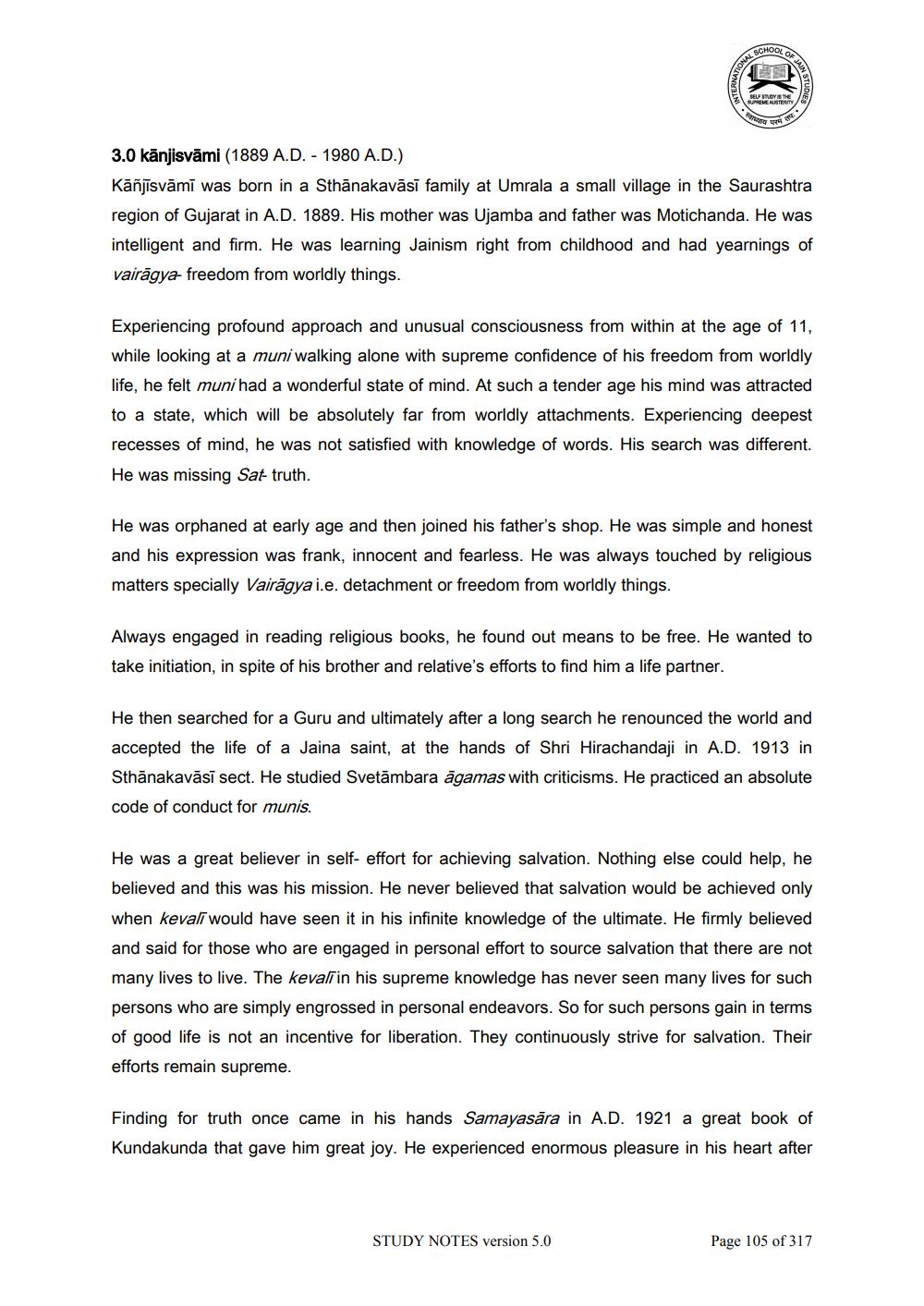________________
3.0 kānjisvāmi (1889 A.D. - 1980 A.D.) Kāñjīsvāmī was born in a Sthānakavāsī family at Umrala a small village in the Saurashtra region of Gujarat in A.D. 1889. His mother was Ujamba and father was Motichanda. He was intelligent and firm. He was learning Jainism right from childhood and had yearnings of vairāgya- freedom from worldly things.
Experiencing profound approach and unusual consciousness from within at the age of 11, while looking at a muni walking alone with supreme confidence of his freedom from worldly life, he felt muni had a wonderful state of mind. At such a tender age his mind was attracted to a state, which will be absolutely far from worldly attachments. Experiencing deepest recesses of mind, he was not satisfied with knowledge of words. His search was different. He was missing Sat-truth.
He was orphaned at early age and then joined his father's shop. He was simple and honest and his expression was frank, innocent and fearless. He was always touched by religious matters specially Vairāgya i.e. detachment or freedom from worldly things.
Always engaged in reading religious books, he found out means to be free. He wanted to take initiation, in spite of his brother and relative's efforts to find him a life partner.
He then searched for a Guru and ultimately after a long search he renounced the world and accepted the life of a Jaina saint, at the hands of Shri Hirachandaji in A.D. 1913 in Sthanakavāsī sect. He studied Svetāmbara agamas with criticisms. He practiced an absolute code of conduct for munis.
He was a great believer in self-effort for achieving salvation. Nothing else could help, he believed and this was his mission. He never believed that salvation would be achieved only when kevali would have seen it in his infinite knowledge of the ultimate. He firmly believed and said for those who are engaged in personal effort to source salvation that there are not many lives to live. The kevali in his supreme knowledge has never seen many lives for such persons who are simply engrossed in personal endeavors. So for such persons gain in terms of good life is not an incentive for liberation. They continuously strive for salvation. Their efforts remain supreme.
Finding for truth once came in his hands Samayasāra in A.D. 1921 a great book of Kundakunda that gave him great joy. He experienced enormous pleasure in his heart after
STUDY NOTES version 5.0
Page 105 of 317




